Hi and welcome back to Dispatch Faith.
Multiple U.S. states have considered or are considering medical assistance in dying (MAiD) laws this year, while a yearslong debate over physician-assisted suicide is playing out in the United Kingdom too.
For today’s newsletter, Dispatch Contributing Writer Karen Swallow Prior focuses on one group’s criticism of the UK MAiD proposal—that of advocates for women who have been victims of domestic abuse and violence. That group’s particular vulnerabilities can serve as a “magnifying glass” for what makes everyone who faces end-of-life decisions particularly vulnerable and what the death with dignity movement misses, Prior argues.
Karen Swallow Prior: Protecting Life Means Protecting Death
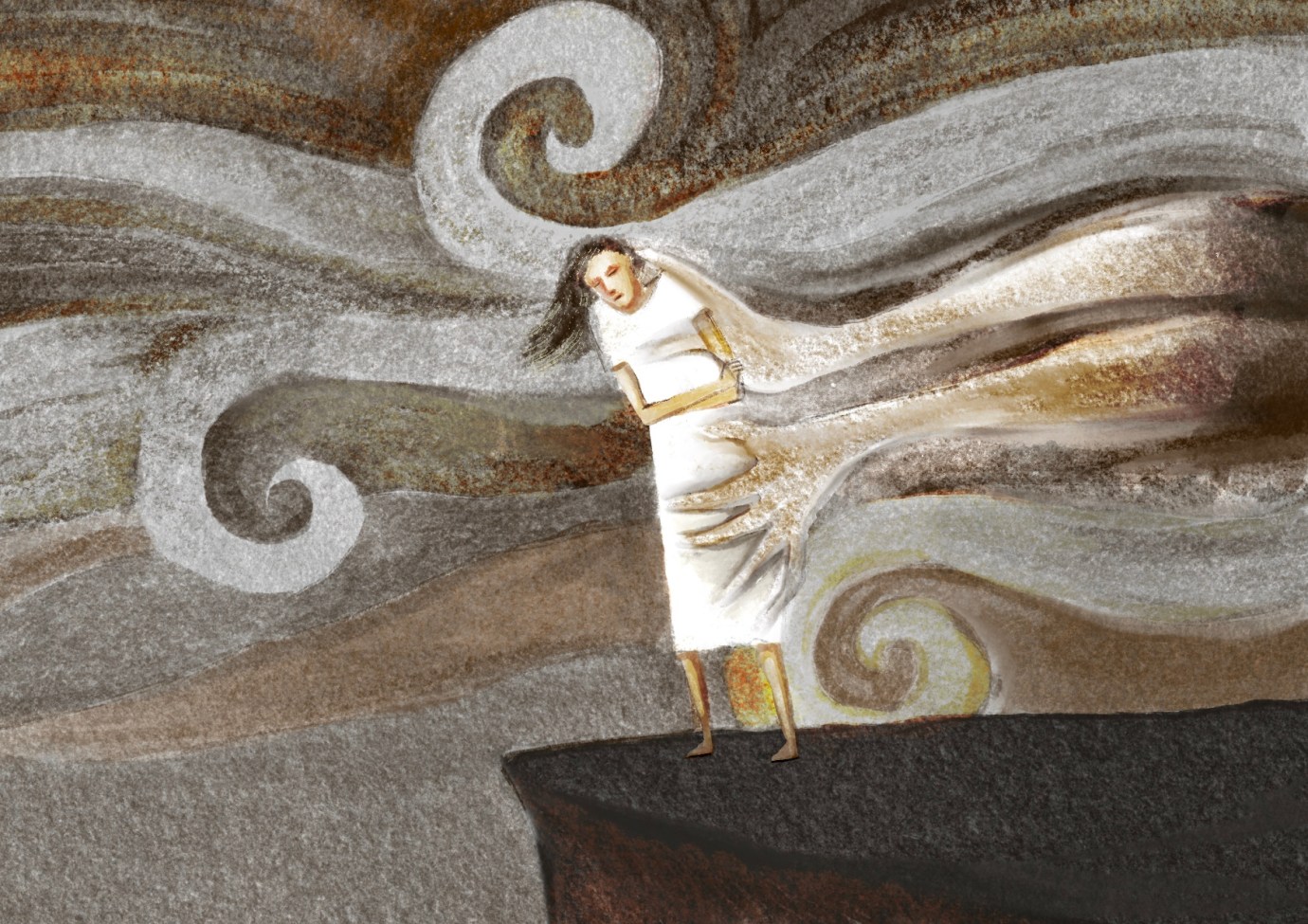
The dying are uniquely vulnerable. This is true even in the best of circumstances.
Last year when my mother was dying—we didn’t know she was dying, but we knew something was terribly wrong—there was a moment one afternoon when she lay atop her bed at home, too weak to get up. I came into the room and sat down at her side.
“I don’t want to live like this,” she said, looking up at me. Her eyes were full of fear, her voice full of quiet anger.
“I know, Mom,” I said.
Then, after a sliver of a second and with as much lightness as I could muster in the heaviness of the moment, I added, “But I’m not going to put a pillow over your face, you know!”
That made my mother almost-laugh, and we smiled at one another. “I know,” she replied.
I knew that wasn’t what she was asking of me. At least, I was pretty sure. My family didn’t know what lay ahead for her or for us. But this was settled: Whatever was ahead, we were committed—by our Christian beliefs and our belief in one another—to facing it together.
Not all who to whom death is drawing near have such a strong system of support. And for those in circumstances lacking such safety nets, laws allowing medical assistance in dying or euthanasia add layer upon layer of vulnerability. This is why proposed legislation in the United Kingdom that would give the terminally ill the right to choose to end their own life is receiving quite a bit of pushback on multiple fronts.
Some disability rights advocates argue that assisted dying devalues the lives of the disabled, perpetuates systemic inequalities, and relies on all-too-fallible medical predictions and decisions. Others think more resources and attention should be given to palliative care. Former Prime Minister Gordon Brown, speaking against the legislation last year, drew from his own experience with the death of his infant daughter in voicing his opposition. “The experience of sitting with a fatally ill baby girl did not convince me of the case for assisted dying; it convinced me of the value and imperative of good end-of-life care,” he wrote.
One particular group, advocates for victims of domestic violence and abuse, have also voiced unique criticisms. An open letter released in April by the British think tank Theos in response to the Terminally Ill Adults Bill warns that the proposed law lacks safeguards necessary to protect those at risk of being coerced into ending their lives, particularly the poor and the disabled. Those at higher risk of being pressured into suicide also include women who are members of highly controlling religious communities who are susceptible to having their religious beliefs weaponized against them so abusively that death seems like the best way out.
Representing women from a range of faith traditions and backgrounds, the letter’s signatories hold varying views on medical assistance in dying but share a common commitment to protecting women and girls from domestic violence and abuse. Citing statistics around suicide, domestic violence, and spiritual abuse, the letter cautions that abuse victims are at greater risk of being pressured into assisted death. The group also cites an alarming new report showing an increased rate of suicide by victims of domestic abuse. And because poverty and other inequalities increase the risk of violence being committed against women and girls, they write, these populations are more at risk for receiving lower-quality health care in the first place, then being coerced into opting for aid in dying when faced with terminal illness.
“If assisted dying is seen as a response to alleviate suffering, without addressing the underlying structural issues that make life difficult and safeguard against harm,” the group argues, “it could put undue pressure on vulnerable women to choose death over inadequate care.”
Moreover, the letter points out that it is those with the most power who tend to make these decisions for those with less power:
Much of the debate inside and outside parliament has been conducted by those empowered to speak of the importance of personal choice, without consideration of those who struggle to be heard in the public square. It is the voices of the unheard, ignored, and marginalised that we are compelled by our faith traditions and scriptures to listen and draw attention to, in the pursuit of good law–making for the common good – legislation that considers and protects the most vulnerable, not just those who speak loudest.
To protect the lives of the most marginalized and powerless, the law must protect their deaths, too. Abuse victims who are terminally ill or disabled must be protected from any pressures by their partners to choose a hastened death rather than continued care. Those who are poor or otherwise marginalized need more support to receive medical care that could improve their quality of lives rather than the efficiency offered by self-imposed death.
In thinking through these arguments on behalf of the most vulnerable among us and considering their further implications, there is something to consider for all of us who are facing end-of-life decisions for ourselves or our loved ones.
Indeed, the acuteness of the situation for victims of abuse who are choosing whether to live or die offers a magnifying glass for all of us who will someday face difficult end-of-life decisions. The end of life makes us all vulnerable: the powerful as well as the powerless, the majority as well as the minority, the centered and voiced as well as the marginalized and silenced.
Laws that legalize euthanasia—no matter how merciful they purport to be—simply fail inherently to protect human life at one of its most vulnerable stages. They harm—lethally and irreversibly—rather than help. They eliminate the sufferer, not the suffering.
Painted in the most idealized strokes, medical aid in dying (which is becoming legal in more and more countries across the globe and is currently under consideration in New York) allows a terminally ill person to choose the time and manner of death—supposedly—freely, without pain, and without external pressures.
Such an ideal does not really exist, however. To be dying is to be constrained. It is to experience pain, and in so doing even cause others pain. Even seemingly self-imposed pressures are contingent upon one’s relationships with others and circumstances in the world and therefore come, at least in part, from outside ourselves. No man (or woman) is an island, as John Donne reminds us. By expanding safety nets, options for palliative care, and support for carers, we can greatly expand the opportunities for the dying to exert agency and make choices freely that stop short of the intentional taking of life.
It is human to fear and to seek to avoid death. It is human to fear and to seek to avoid suffering and pain. It is human to fear and to seek to avoid causing those we love to suffer.
And yet, it is the essence of our shared humanity to bear these burdens with one another. Not one of us bid ourselves to come into the world. Not one of us needs to or ought to bid ourselves or another out of it.
It is easier to end a life than it is to care for a life nearing the end. “The compassion of the wicked is cruel,” as Proverbs 12:10 (CEB) says. This is why great care must be taken, not only for the more obviously vulnerable, but for all of us who will someday approach the end of life.
To care for the dying undeniably requires inconvenience, self-sacrifice, unfathomable heartache, and more. To offer these gifts to those who suffer is a basic tenet of the Christian faith, one woven throughout scripture, church practice, and the testimony of history. Some of the earliest hospitals were established by the early church, a legacy that has continued into modern times with the rise of the nursing profession, the modern hospice movement, and the ongoing leadership of Christian medical facilities today.
We are to care for the vulnerable, which includes the aliens in the land, the widows, the orphans, the unborn, the prisoners, the sick, and the dying.
And perhaps there is no one more vulnerable than the dying.
What lies ahead for the dying—as well as the living—is certain pain and suffering, helplessness and dependency, fear and uncertainty. It is not possible to live without suffering. But thanks to palliative and hospice care, choosing death isn’t the only means of ending the pain of living. In a world of limited time and resources, all the energies that go into legalizing medical aid in dying are ultimately diverting resources that could improve and expand end-of-life care.
Those last weeks, days, and hours of my mother’s life (and her dying) were ones nothing had prepared us for. But the human body and modern medicine are miraculous things. The body knows what to do to ease the pain. We learned what to do, too, because of the trained professionals who supported and helped us.
Love, too, is miraculous. The more my mother’s body shut down and the pain medication gave her relief, the more the suffering was ours. We gladly bore it for this woman we loved and who loved us.
The law, of course, cannot force us to love. But it can help us to live free from harm at human hands.
Andy Smarick: Supreme Court Appears Poised to Rule in Favor of Faith-Based Charter Schools

On Wednesday, the Supreme Court heard oral arguments in Oklahoma Statewide Charter School Board v. Drummond, a case that will decide whether a virtual Catholic school in Oklahoma can become the country’s first religious charter school. For our website, Contributing Writer Andy Smarick broke down how oral arguments went.
State charter school laws have been around for more than 30 years. They enable nonprofits to operate public schools free of many rules that apply to the traditional government-run public schools. That list can include policies related to calendars and schedules, teacher pay and certification, curriculum, teaching methods, and more. From the very beginning, all charters have been secular. That’s been required by state laws. But a Catholic-affiliated applicant in Oklahoma put those provisions to the test, essentially arguing that it is anti-religious discrimination for a state government to allow any nonprofit other than faith-based groups to operate a charter consistent with its beliefs.
The likeliest battle line, I thought, would be whether charters are “state actors” (quasi-governmental entities). If so, they must be secular. But if they’re private nonprofits partnering with the government, they might be allowed to be faith-based.
But if the five more conservative justices (Justice Barrett is not participating in this case) quickly revealed that they believe charters are not state actors, I suspected the battle line would shift to possibly reviving some kind of “status-use” distinction. Oklahoma and the progressive justices would, I thought, tacitly concede that faith-based groups can operate charters while arguing that states had a right—to keep church and government separate—to prohibit those charters from using state money to do a variety of religious things.
The third possibility would come about, I thought, if the conservative justices made clear that religious groups must be allowed to run charters consistent with their faiths’ teachings. In this case, Oklahoma and the progressive justices would retreat for a final standoff, trying to preserve some ability of states to limit the scope of faith-based chartering. This might include narrowing the ministerial exception (the legal doctrine protecting religious entities’ key staffing decisions from government interference), ensuring state nondiscrimination statutes apply to religious charters, and/or preventing a maximalist view on faith-based groups’ participation in government programs.
More Sunday Reads
- Nearly a century ago, famed preacher Aime Semple McPherson walked out of a hotel room barefoot and disappeared. Five weeks later, she returned with a story that became as controversial as it was fantastical. For The New Yorker, Casey Cep recounts this story and McPherson’s legacy as she reviews a new biography of McPherson written by Claire Hoffman. “It was May 18, 1926, and the thirty-five-year-old McPherson was known to critics and champions alike as ‘God’s Best Publicity Agent.’ McPherson rose to prominence during the golden age of P.R., when Ivy Lee was talking up the Rockefellers and the Democratic Party and Edward Bernays was selling everything from Dixie cups to the First World War. In keeping with the times, McPherson used mass media to make herself into a master of soul craft and self-promotion, laying hands on thousands of sick parishioners and preaching practically seven days a week to thousands more until her death, in 1944. Her sermons featured elaborate sets and musical numbers, borrowed from the nearby and nascent film industry, including boxing rings in which she knocked out the Devil and a motorcycle that she wheeled across a stage with sirens wailing while calling herself one of the Lord’s patrolmen. ‘Half your success is due to your magnetic appeal,’ Charlie Chaplin once told her, ‘half due to the props and lights.’ More recognizable than the Pope, McPherson was often besieged by followers, but the ocean offered an escape from their attention, and she liked going to the beach to read Scripture and to write, and then to take a break from both to swim. That May afternoon, she chose a title for her sermon, ‘Light & Darkness,’ and wrote for almost an hour before wading into the water. Jonah was swallowed by a whale on his way to Tarshish, and St. Paul was shipwrecked off the coast of Malta, but no one knows what happened to McPherson after she wrote the following in her notebook: ‘It had been that way since the beginning. The glint of the sun, gleaming light, on the tops, and shadow, darkness in the troughs. Ah, light and darkness all over the earth, everywhere.’ More than a month later, and two days after her own memorial service, the lady preacher reappeared, still barefoot but now wandering around a Mexican desert, hundreds of miles away.”
- On Friday, President Donald Trump announced he would seek to end Harvard University’s tax-exempt status because of what he sees as the institution’s antisemitism, which is sure to trigger a legal battle. Last month for Religion News Service, as talk of such a move heated up, Jack Jenkins and Bob Smietana reported on the federal government revoking the tax-exempt status of Bob Jones University in the 1970s over the evangelical school’s prohibition of interracial marriage among students. Such a move against Harvard may be inherently political, but it and the wider legal debate are also shot through with religion. “Some evangelical Christians worry Trump’s attempt to revoke Harvard’s tax exemption could backfire. Conservatives have long voiced concerns that Christian groups that oppose marriage for same-sex couples and LGBTQ+ rights on religious grounds might find their tax exemptions at risk. That worry was prompted by the 2015 Obergefell decision, in which the Supreme Court legalized same-sex marriage nationwide. During oral arguments for that case, then-U.S. Solicitor General Donald Verrilli said faith groups who opposed could find their tax exemptions at risk if it were legalized. Chief Justice John Roberts cited those remarks in his dissent. ‘Unfortunately,’ he wrote, ‘people of faith can take no comfort in the treatment they receive from the majority today.’ Those concerns led Christian groups such as Alliance Defending Freedom and the American Family Association to oppose the 2022 Respect for Marriage Act, a federal law that recognized same-sex marriages. When that law was signed by President Joe Biden, Alliance Defending Freedom said it ‘intentionally threatened free speech and religious liberty.’ [David] French said the IRS’ Bob Jones ruling to punish nonprofits over LGBTQ+ rights has long been the Christian right’s ‘nightmare scenario.’ He warned that if Harvard loses its tax exemption, that could open the door for the Christian right’s nightmare to become reality.”
Religion in an Image
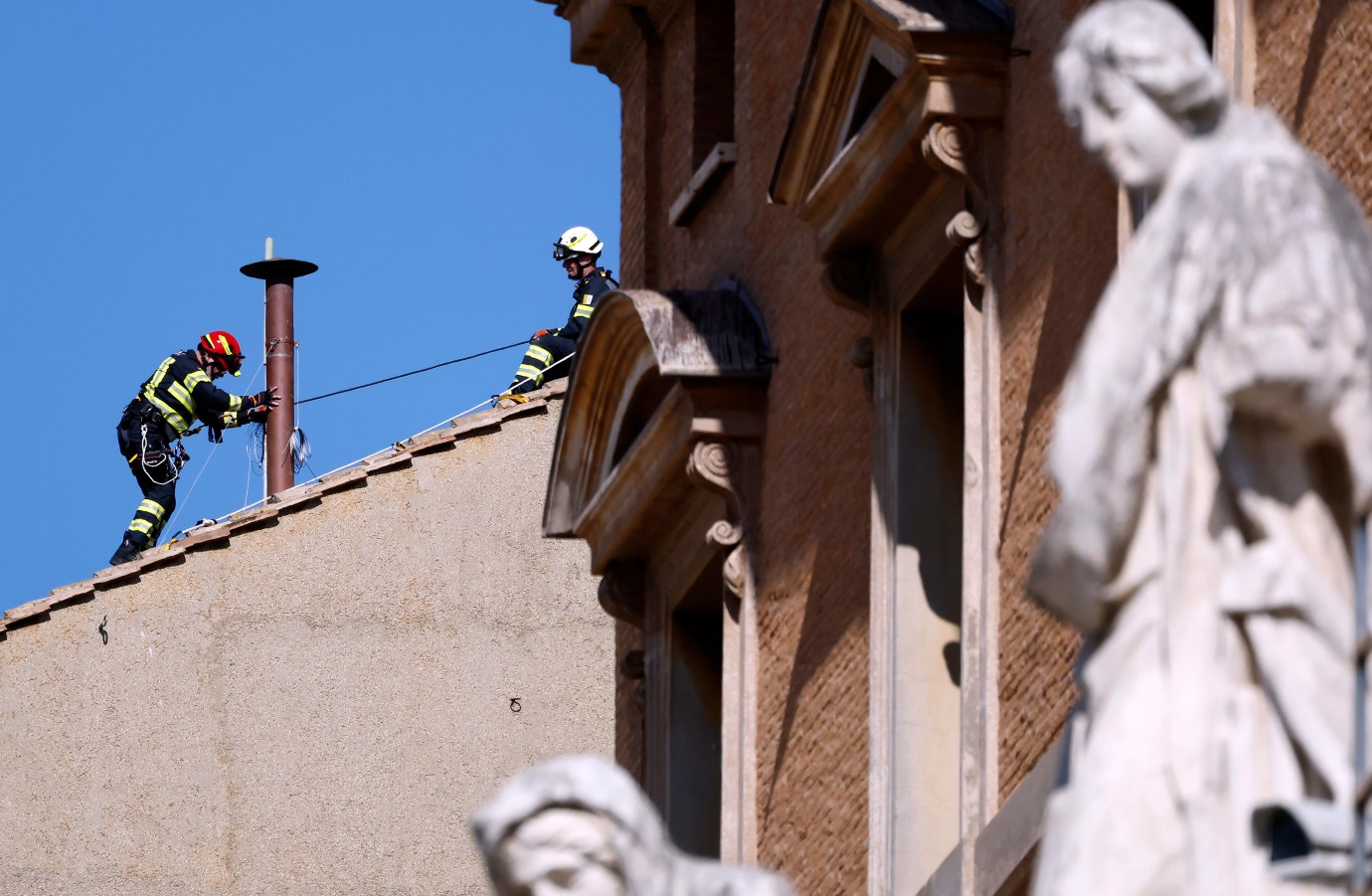



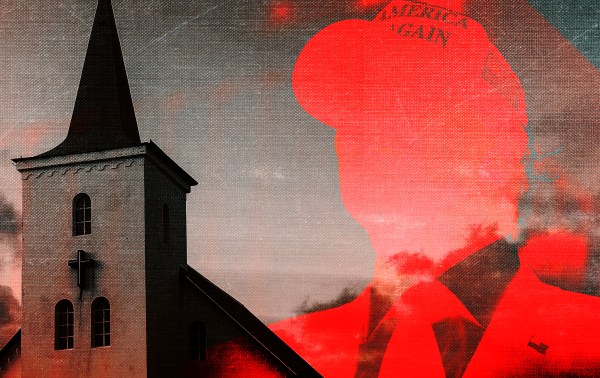
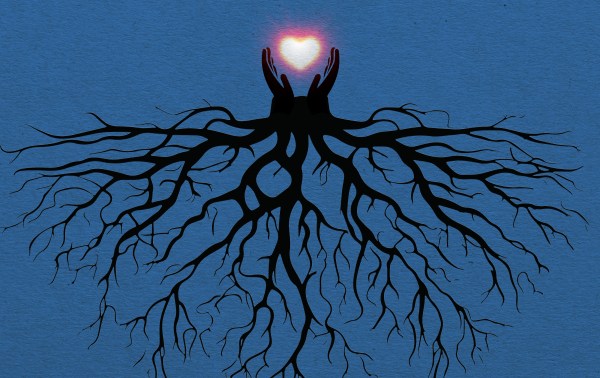
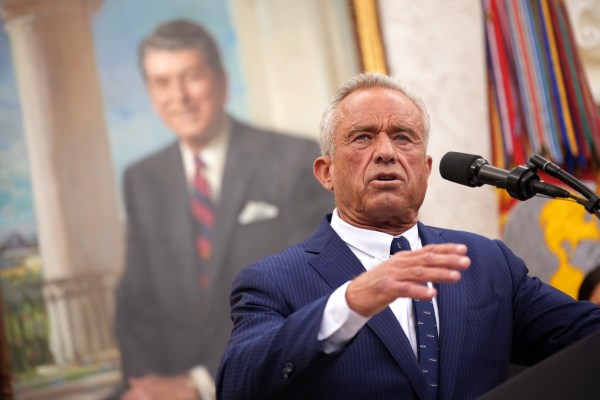

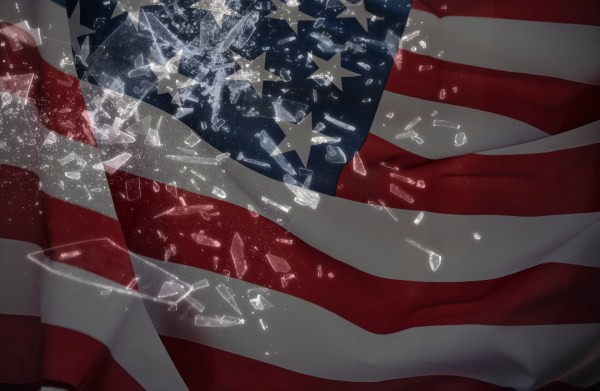
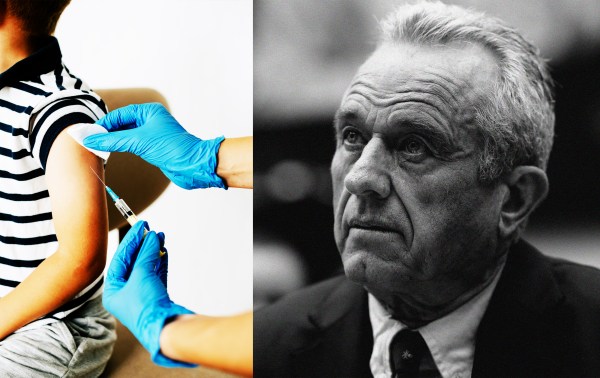

Please note that we at The Dispatch hold ourselves, our work, and our commenters to a higher standard than other places on the internet. We welcome comments that foster genuine debate or discussion—including comments critical of us or our work—but responses that include ad hominem attacks on fellow Dispatch members or are intended to stoke fear and anger may be moderated.
With your membership, you only have the ability to comment on The Morning Dispatch articles. Consider upgrading to join the conversation everywhere.